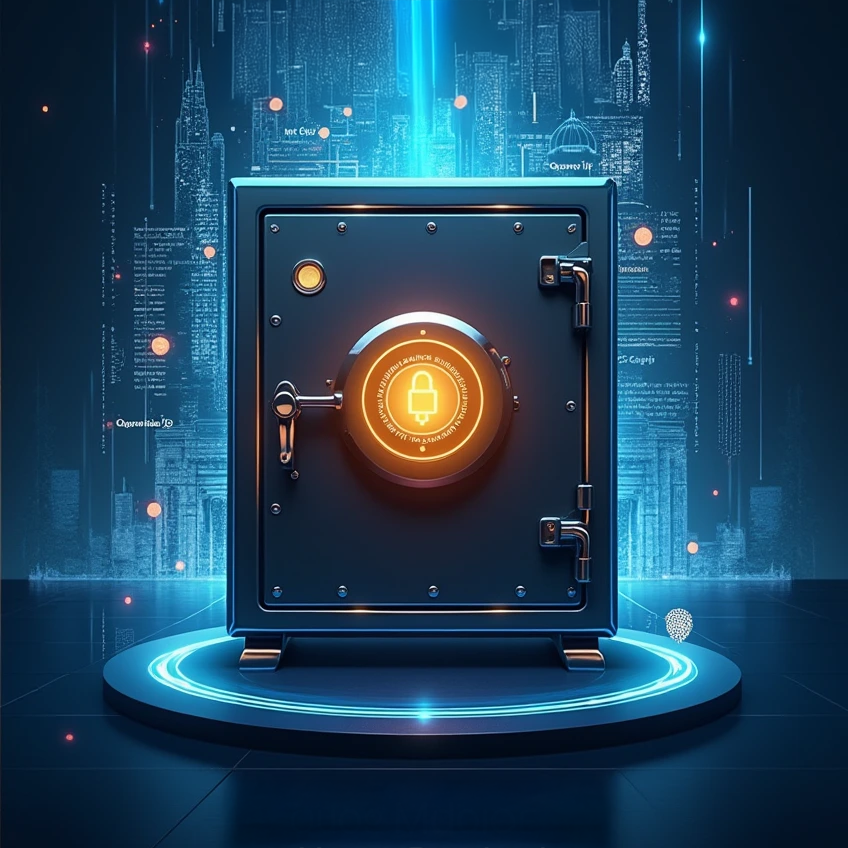$10 billion.
That's how much money vanished when crypto exchanges collapsed. FTX. Mt. Gox. Quadriga. One day people had millions in their accounts. The next day? Gone.
But here's what most people don't know: it didn't have to happen.
There's a way to own crypto where no exchange, no company, no government can touch your money. It's called self-custody, and in 2025, it's not just for tech nerds anymore.
The Problem With Trusting Others
Think about your bank account. You deposit money, but you don't actually control it. The bank can freeze it, the government can seize it, hackers can steal it. You're essentially renting access to your own money.
Crypto was supposed to be different. Bitcoin was built so you could be your own bank. But most people took their crypto and... put it right back into bank-like institutions.
Why? Because early crypto wallets were terrifying. Lose a piece of paper with 12 random words? Lose everything forever. So people chose convenience over control.
Then the collapses started.
What Self-Custody Actually Means
Here's the simplest way to think about it:
Traditional custody: Your money sits in someone else's safe. They promise to give it back when you ask.
Self-custody: Your money sits in your own safe. Only you have the combination.
With self-custody, even if the platform you're using disappears tomorrow, your crypto stays exactly where it is—in your control.
The catch? You become responsible for not losing the combination.
Why Everyone's Talking About It Now
Three things happened that made self-custody go mainstream:
1. Trust Collapsed
When "safe" institutions lost billions overnight, people realized the emperor had no clothes. If trillion-dollar companies can vanish, what's actually safe?
2. Technology Got Better
Remember when email was complicated? Now your grandmother uses it. The same thing happened with crypto wallets. You can now control your own crypto as easily as you send a text message.
3. The World Got Unstable
Bank runs, currency crashes, governments freezing accounts. People worldwide started asking: "What if I need money but can't access it?"
The New Reality: Easy Self-Custody
Here's what changed everything: you no longer need to be a computer expert.
Modern self-custody platforms use:
- Social logins (sign in with Google, just like everything else)
- Biometric security (your fingerprint or face replaces complex passwords)
- Social recovery (friends can help you recover access if something goes wrong)
Translation: Your mom can now control her own crypto wallet more easily than she can reset her bank password.
The Honest Trade-offs
Let's be real about what you're signing up for:
What you gain:
- Complete control over your money
- No one can freeze, seize, or steal your funds
- No monthly fees or account minimums
- Works 24/7, anywhere in the world
What you risk:
- You might lose access if you're not careful
- No customer service hotline to call
- You need to plan for inheritance and recovery
The bottom line: You trade the risk of someone else losing your money for the risk of you losing your money. For many people, that's a trade worth making.
Start Small, Start Smart
For skeptics: You don't need to become a crypto maximalist. Try moving $20 into a self-custodial wallet. Send it to a friend. Get it back. Experience what it feels like to move money without asking anyone's permission.
For believers: Stop lecturing people about private keys. Start showing them platforms that make self-custody feel normal, not scary.
The Future Is Here
Every internet revolution follows the same pattern:
- 2003: "No one will share their real name online"
- 2013: "No one will get in cars with strangers"
- 2024: "No one will manage their own crypto wallets"
Plot twist: They all happened.
Why This Changes Everything
Self-custody isn't really about crypto. It's about not asking permission to use your own money.
Once you've experienced true financial sovereignty—sending money anywhere, anytime, without intermediaries—everything else feels like asking your parents for allowance.
The technology is ready. The platforms exist. The question isn't whether self-custody will go mainstream.
The question is: will you be early, or will you wait until everyone else figures it out first?
Ready to take control? The future of money doesn't require permission—just the courage to stop asking for it.
